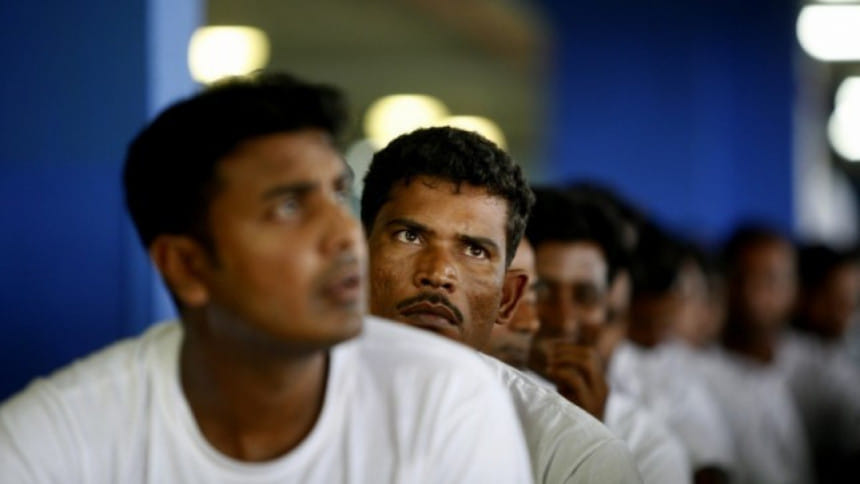Protect migrant workers and their families

A recent report published in this daily highlighted the call made by the International Organization for Migration (IOM) for supporting migrants and remittance-dependent communities who are impacted by the pandemic. The report forecasts that hundreds of thousands of migrant workers are expected to return to Bangladesh by the end of this year, and join the pool of the already existing domestic informal and formal sector employees who remain jobless.
The ongoing exodus sheds light on the plight of migrant workers, who play an integral role in keeping their households and local communities afloat, and keep the wheels of the economy turning with their remittances as well. Last year, Bangladesh was the third highest recipient of remittance in South Asia, with $18.32 billion being sent back by an estimated one crore Bangladeshi migrants. However, the UN agency has warned of the stigmatisation of returning workers and urged their reintegration into the economy before there is too huge a detrimental impact on remittance-receiving households and communities.
The government announcement of Tk 700 crore for low interest loans that will help returning migrants to start new businesses, and its plans to re-skill the job-seekers for overseas employment, while commendable, are not enough. An IOM study found that the economic return on migration remains inferior in Bangladesh compared to other countries, since the majority of our migrants are low-skill workers who tend to remit less, and a larger portion of their earnings are spent on meeting short-term needs or paying off loans. In this scenario, it is imperative to make long-term investments in education and skills for lower skilled migrant workers so that they have better paid jobs in the future. The authorities should also consider incorporating the returnees and their families into government social safety net programmes in the short-term to prevent them from falling further into poverty. Financial literacy and remittance management capacity of households should be focused on as well.
It is unfortunate that the Ministry of Expatriates' Welfare and Overseas Employment received an insufficient allocation in the recent budget to deal with Covid-19-induced unemployment. It will be a herculean challenge for the government to create enough employment to make up for the jobs that are lost abroad. A comprehensive plan is crucial to ensure that migrant workers do not become even more vulnerable upon their return.

 For all latest news, follow The Daily Star's Google News channel.
For all latest news, follow The Daily Star's Google News channel. 




Comments